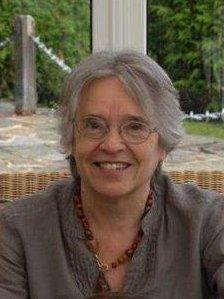Llan Colliery disaster: 1875 Gwaelod-y-Garth blast victims honoured
- Published
A memorial to 16 men and boys who died in Cardiff's only mining disaster has been unveiled after a campaign for them to be remembered.
Norma Procter became inspired by the story of workers at Llan Colliery in Gwaelod-y-Garth who were killed in an explosion on 6 December 1875.
She lives in the house of one of the victims and researched the disaster's effects on the men's families.
Former first minister Rhodri Morgan unveiled a plaque in the village.
Around 300 men and boys worked at the Llan drift mine, which supplied coal to the neighbouring Pentyrch iron works and brick works on the outskirts of Cardiff.
On a snowy December morning 137 years ago, half of them were on shift when an explosion ripped through a coal seam 500ft (152m) down.
Villagers from surrounding areas congregated at the surface as word spread, along with two doctors from nearby Taffs Well.
The dead and injured were carried out of the mine on planks and taken to local houses where their wives and mothers tended to them.
Twelve men and boys died that day, including one aged 12 and an 11-year-old who had been playing hide and seek underground.
Another four died afterwards from the effects of the explosion.
Mrs Procter, who moved into her cottage in Gwaelod-y-Garth over 100 years later, became fascinated by the stories surrounding the disaster.
Little was known about the tragedy, which came more than 40 years before the more widely reported 1913 disaster at Universal Colliery in Senghenydd, Caerphilly county, where 439 miners died.
The 72-year-old learnt that one of the victims of Llan once lived in her house with his wife and six children.
"His name was Abraham Phillips and my grandson did research and discovered he was the overman [who inspected the state of the mine every morning] and he was killed at the colliery on 6 December," she said.
"By 1 January his wife and family had left the house - that's how hard life was in Victorian times.

Norma Procter has researched the story of the colliery explosion
"It was probably owned by the mining company and because the workers were not unionised the widows and their families were not given any money and many ended up in work houses.
"I became interested in the dilemma that had faced Abraham on the day of the explosion.
"The fireman had told him there was gas down the mine but he decided to risk it and took the men down.
"But it was a difficult decision - there was a fear the pit would close and 300 families depended on him for work.
"He was a highly respected man and he went in with the men - he didn't send them off alone."
It emerged that there had been poor ventilation in the mine, while smoking and naked flames were also allowed there.
Mrs Procter was interested in what happened to the families left behind and has written a book based on her research.
"After Abraham died his wife became a charwoman [a house cleaner] in Bedwas. Abraham wasn't particularly poor and left £100," she said.
"One of his sons came back to the village 20 years later but most of his family died quickly."
She felt strongly that more should be done to remember the victims and she campaigned for a permanent memorial to be put up in the village hall.
It was unveiled on Thursday by former first minister Rhodri Morgan and Ann Gray, a great niece of Abraham Phillips, who still lives in Gwaelod-y-Garth.
'Hard life'
Reg Malpass, a former Rhymney Valley miner and local mining historian, said it was important to remember those who gave their lives for mining.
"A lot is said about the great and good, the captains of industry, but many thousands of men and boys - and some women - died in the pursuit of coal.
Norma Procter says Cardiff's only mining disaster is now largely forgotten. She spoke to Oliver Hides.
"But we often don't hear of them or know their names so it's nice to have something to acknowledge their sacrifices."
He said he hoped the memorial would provoke interest in mining history among the younger generations of Cardiff.
"When you do research you realise what a hard life miners and their families in those days had," he said.
"We think we're hard done by - we're rich beyond measure compared to these people.
"Gwaelod-y-Garth wasn't a big place so many people who worked in the mine were lodgers in the houses.
"It was nothing for someone to go to work and the person coming in from a late shift to take their place in the bed.
"The women also suffered.
"After the explosion, it was the wives and mothers who had to look after the injured and prepare the dead bodies for viewings by the coroner and neighbours.
"Things like that aren't realised by people and you think that's a travesty."
- Published14 October 2010